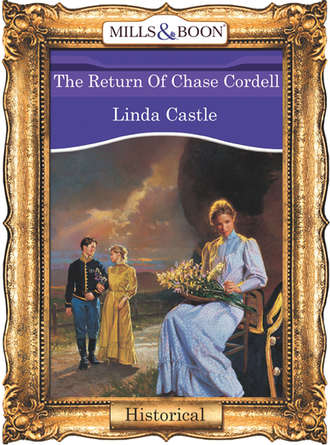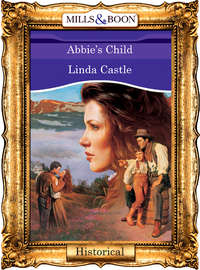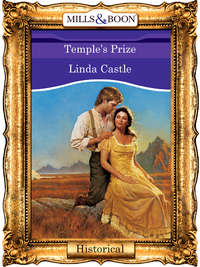
Полная версия
The Return Of Chase Cordell

Table of Contents
Cover Page
Excerpt
Dear Reader
Title Page
About the Author
Dedication
Chapter One
Chapter Two
Chapter Three
Chapter Four
Chapter Five
Chapter Six
Chapter Seven
Chapter Eight
Chapter Nine
Chapter Ten
Chapter Eleven
Chapter Twelve
Chapter Thirteen
Chapter Fourteen
Chapter Fifteen
Chapter Sixteen
Chapter Seventeen
Chapter Eighteen
Chapter Nineteen
Chapter Twenty
Chapter Twenty-One
Chapter Twenty-Two
Chapter Twenty-Three
Chapter Twenty-Four
Author Note
Copyright
Chase watched as the mayor brought forward the pretty blond woman.
He stared dumbly down at her upturned face.
“Go on, Linese, give your husband a proper reception,” the mayor urged.
“Welcome home— Chase.” She rose on tiptoe and touched her soft lips to the side of his face in a self-conscious greeting.
His heart slammed against his rib cage. Linese. This was Linese. This was his wife.
God, she was beautiful, and younger than his own twenty-one years, if he had his guess. She was the very image of what every soldier wished he had waiting for him at home.
Chase swallowed hard and beseeched God to let him remember her, but nothing happened. He remembered nothing about her.
He was doomed to play out this charade in a life he could not recollect. And this poor woman, who had done nothing to deserve this kind of punishment, was condemned to play it out with him.
Dear Reader,
The Return of Chase Cordell is a poignant new Western from Linda Castle, an author who is fast becoming one of our most popular writers. It’s a love story about a war hero with amnesia who is struggling to put his life back together, and rediscovering a forgotten passion for his young bride. Don’t miss this wonderful story.
Ana Seymour’s sequel to Gabriel’s Lady, Lucky Bride, is the delightful story of a ranch hand who joins forces with his beautiful boss to save her land from a dangerous con man. Elizabeth Mayne, a March Madness/Romance Writers of America RITA Award nominee author, is also out this month. Her book, Lord of the Isle, is a classic Elizabethan tale featuring an Irish nobleman who unwittingly falls in love with a rebel from an outlawed family.
And another RITA Award nominee, Gayle Wilson, is back with Raven’s Vow, a haunting Regency novel about a marriage of convenience between an American investor and an English heiress.
Whatever your taste in reading, we hope you’ll enjoy all four of these terrific stories. Please keep an eye out for them wherever Harlequin Historicals are sold.
Sincerely,
Tracy Farrell
Senior Editor
Please address questions and book requests to:
Silhouette Reader Service
U.S.: 3010 Walden Ave., P.O. Box 1325, Buffalo, NY 14269
Canadian: P.O. Box 609, Fort Erie, Ont. L2A 5X3
The Return of Chase Cordell
Linda Castle

LINDA CASTLE
is the pseudonym of Linda L. Crockett, a third-generation native New Mexican. Linda started writing in March of 1992, and The Return of Chase Cordell is her third book from Harlequin Historicals.
When not penning novels, Linda divides her time between being a wife, mother and grandmother. She loves speaking, and teaching what she has learned to aspiring writers. Her best advice—write from the heart.
Linda believes one of the greatest benefits she has received from writing historical novels is the mail from the readers. She encourages and welcomes comments to be sent to: Linda Castle, #18, Road 5795, Farmington, NM 87401. Please include a SASE for a reply/bookmark.
As always, I thank God for my life and the people that love me; Bill, Billy, Liann, Brandon and Logan. They continue to show patience and understanding when none is earned or deserved. Hugs and kisses to Matt and Will, my grandsons.
There are many unsung heroes who cross my path each day—it is impossible to name all my friends, who read snippets of dialogue and listen to me whine, but please know I do appreciate you all.
Thanks to two extraordinary women I am proud to count as friends, and without whom this book would probably not exist—Margaret Marbury, my editor, and Pattie Steele-Perkins, my agent.
And last, a special note of gratitude to the people who really make this possible: the readers. Thanks to every person who has taken the time to read my books and write to tell me how my words made them feel—this one is for you!
Chapter One
Mainfield, TexasApril, 1864
Linese dipped the quill pen into the ink and tried to put her thoughts on paper before the rush of inspiration left her. Her lace cuff slipped down toward her wrist, and she im-patiently took the time to secure it with the stained black garter around her arm. She dared not show up at the train with ink on the sleeves of her frock.
“What time is it, Hezikiah?” She glanced up at the small man swathing ink on the big flat-head printer.
“About ten minutes later than the last time you asked me.” He swiped his hand across his face and turned his snowy beard a grizzled gray with a fresh smear of newspaper ink.
“I’m sorry. I hoped to get this editorial finished before the train pulls in.” Linese bit her lip and tried to concentrate on the paper in front of her. Chase’s homecoming kept intruding on her, leaching off her ability to make coherent thoughts. The war was over for Chase, even though the fighting continued over the question of secession. Linese wanted this editorial, more than any other before it, to be a testimonial to the courage and honor of both sides in the bitter conflict dividing the Union, particularly since she knew it would be the last she would ever write.
“I suppose, with Mr. Chase returning, this will be the last time we’ll work together, won’t it?” Hezikiah’s voice halted the scratch of the nib in mid-sentence when he gave her very thought life.
She looked up at the old gentleman, who, more than anyone in Mainfield, had helped her survive the long separation from her husband.
“Yes, I expect it will.” She set the quill aside. “Hezi-kiah, in case I never get another opportunity, I want to thank you. This paper wouldn’t have endured if not for you.”
“Nonsense. This paper weathered because you had the grit and determination to make it survive. I’ve worked with a lot of men, Mrs. Cordell, and there isn’t one of them I’d trade for you. You’ve become a right-hand journalist.” Hezikiah blushed bright red before he turned away and busied himself once again with the press.
“I wish more men in Mainfield thought that way,” Lin-ese muttered. Her words trailed off. She willed her hand to stop shaking while she added the last sentence to her epitaph as a newspaper editor.
The time Chase had been gone had required her to become a different kind of woman. She feared Chase would be less than pleased to have an independent thinker for his wife. She well remembered the one day he’d brought her to the Gazette. His words had echoed in her mind a thousand times over the past two years.
“Women who insist on intruding into a man’s domain become shrews and widows. Nothing is so unattractive, to me, as a woman with ideas in her head or ink stains upon her hands.”
She glanced at her own stained fingers and grimaced. Linese had managed to acquire both offensive traits while Chase was away. The woman she was now was a far cry from the girl he had married.
Being raised by a pair of aging maiden aunts had compelled Linese to be subservient and pliant. In fact, if she had been any other kind of woman, she never would have married Chase after knowing him fourteen short days. But the war had changed her and the world around her. Unfortunately, the letters Chase had written home had not reflected a similar change in him. Linese sighed and laid the quill aside just as the train whistle blew.
“They’re crossing the bridge at the gap outside of town.” Hezikiah pulled his watch from his vest and looked at it. “Right on time, too.”
“Oh, Lord, I’m going to be late.” Linese jumped up and tore off the black garters while she located her gloves. She nearly ripped out the seams in her haste to pull them over her discolored fingers. When she put the bonnet on her head and shoved the hat pin through, she immediately felt the spring heat trapped between the large brim and her neck.
She wished Chase’s return could have taken place on a day when it wasn’t so oppressively hot. This particular April seemed to be more humid and stormy than usual, or maybe it was just her fears about her husband’s return as a war hero that made her feel like a frog on a hot rock.
The bright sunshine outside the newspaper office momentarily blinded Linese when she stepped outside. She popped open her parasol and hurried toward the train station. Each step made her boned corset feel all the tighter in the muggy heat.
Mainfield’s proximity to Louisiana had made it strategically important to the troops on both sides of the present hostilities. Linese only wished that the citizens of the town could enjoy some of the benefits of the community’s location. More and more of late, she had watched people cinching in their belts another notch due to the scarcity of supplies around town. Only a select few of the local businessmen seemed to be prospering during this hard time. The mayor and several other prominent merchants grew fat while all around her she looked into faces grown gaunt from lack.
Linese turned the corner by the merchants bank and stopped with a gasp of surprise. Not only had a sizable crowd gathered at the train station, but cloth banners proclaiming Chase Cordell a hero were stretched across the front of the buildings along the tracks.
She had been nervous enough about the homecoming when she thought it would be a private reunion; now pure terror snaked around her heart when she looked at the people who would be observing her every word and deed.
What would she say to Chase? How should she behave? They had shared a whirlwind courtship of two weeks and one awkward honeymoon night, before Chase rode off to war vowing he’d be back in a month. He had never even told her that he loved her before he left her standing beside his grandfather on the steps of Cordellane.
Chase Cordell left a shy bride who had dewy-eyed expectations of marriage. In order for her to survive, she had learned to adapt—to grow up. She hoped she would be as adaptable now and that she would survive the next few moments. Linese bit her bottom lip and summoned up her courage.
She approached the crowd and several heads turned in her direction, destroying the flimsy hope that she might blend in among the mob. One man strutted forward from the throng, sunlight winking off the stickpin on his barrel chest.
“Mrs. Cordell, come up here. I was wondering what was keeping you—not trouble with the old Captain?” Mayor Kerney’s florid jowls curled into a false smile.
Linese frowned and fixed a blank stare on her face to hide her annoyance. She strongly resented the mayor’s assumption that Chase’s sweet old grandfather was in any way a bother or a hindrance because of his mental condition.
“Not at all. I was… detained.”
“Oh yes, of course. Well, ma’am, you step up here in front. We want Major Cordell to see his pretty bride right off. Yes, we do.”
Linese was shoved and jostled to the very edge of the train platform. She tried to retreat backward into the crowd, but the crush of bodies formed an impenetrable wall behind her.
There was no escape. Her first meeting with Chase would be as public as it could get in Mainfield, Texas. Knowing they would be on display made her all the more uncomfortable.
She told herself not to fret too much for Chase’s sake. He was, after all, Major Chase Cordell. He had always been a man who kept his inner feelings to himself and showed the world, including her, only his bravado. Now he was the darling of Texas and the Northern army, coming home victorious from his last battle. He would be as happy as a whitewashed pig, and she would simply have to endure.
Linese glanced around at the faces in the crowd. She saw Southern and Northern sympathizers standing side by side on the platform, waiting for her husband’s return. The opinion about which side would ultimately prevail, like the entire issue of the war, was split firmly down the middle in Mainfield. The town leaders had never shown any lasting allegiance to either North or South. Linese thought it was probably because of Mainfield’s unique location. A Texas town, yet so very near the Louisiana border. Western ideals had never really meshed with Southern traditions. In addition, Mainfield had the odd distinction of being located on a major route. Supplies, troops and even fleeing slaves came remarkably close to the town.
In one respect the residents of Mainfield had been lucky. Food and goods continued to trickle into Mainfield, when other towns had nearly perished during the conflict. Still the months she had worked at the Gazette made her wonder how the town could remain so neutral, and how long that privilege would last.
Chase had kept Linese updated by letter on each battle—and uncompromising victory—which had ultimately insured his status as a local champion. Many of those letters had been used to document the news of the war in the Gazette.
It had been Chase’s dream to ride off to battle and return with medals of honor, to the praise of an adoring community after the Union had won the war and settled the question of secession. At least in one respect, he had gotten his wish. Though the question of secession was unclear, he was definitely returning home a hero.
Linese sighed and mentally scolded herself for her selfishness. A dutiful wife should rejoice in her husband’s return, be happy for his achievements.
She fell in love with Chase because he was dashing and bold and knew exactly what he wanted. Now was no time to begin questioning those sentiments, although in her heart of hearts she admitted it would be easier if she didn’t feel as if she were greeting a living legend.
A tiny thread of sweat snaked down the nape of her neck. Linese tried to ignore the rising temperature and the throng of people elbowing her relentlessly forward, to the very edge of the platform, while she stared down the track toward the dark puff of smoke wending its way through the treetops. Each mile it drew closer, the knot in her stomach grew larger.
Chase shifted his position on the hard train seat and peered out the window. The throbbing in his hip had become a steady pain. He squinted his eyes and searched far out until the features of the land blurred into a shapeless nothingness that matched the formless void in his head. He prayed he would recognize something—anything—about the landscape outside the train-car window.
A pretty river meandered down the rocky slope and cut a slash through tangled vines and dense forest. It was completely unknown to him. He might as well have been a thousand miles from the place his aide identified as his home, for all the familiarity it summoned in his brain. He rubbed the heels of his hand against his eyes. His head hurt, his leg hurt, and still he had no memory.
Sporadic recollections of certain events in his childhood rattled around in his head, like a few stones in an empty bucket, but he could not grasp one shred of fact about his adult life.
He didn’t know who he was now or what kind of man he had been before. Chase Cordell had had no recollection of anything tangible since the Confederate shell fragment had torn through his hip, knocked him senseless and taken him out of the war forever.
He glanced over at the young man in uniform who had accompanied him from the field hospital. Jeffrey’s companionable chatter had filled the hours on the train and supplied some commonly known anecdotes about Chase’s military life, but Chase had no memory of his own with which he could confirm or deny anything the young soldier said.
Jeffrey must have felt Chase’s eyes on him, because he looked over and smiled uncertainly. “I bet you are anxious about getting home, aren’t you, sir?”
The lad’s question sent an uneasy shiver through Chase. Several times on the journey he had caught the young soldier looking at him with an expression that was close to awe, but he didn’t know why the boy stared, and that clawed at his insides.
Chase nodded stiffly in answer to Jeffrey’s comment. Anxious was too mild a word for the way he felt. There was a knot in the pit of his stomach the size of a cannonball and twice as heavy.
Chase had spent the better part of last night rereading the stack of dog-eared letters that bore his name on the envelopes. The letters were all signed by Linese—his wife—a woman whose face he could not remember.
He was returning to a town he couldn’t remember, to a wife he didn’t know, from a bloody war he wanted only to forget.
The irony of it all was not lost to him. Chase leaned his head back against the seat and closed his eyes. He tilted his hat down over his face in order to spare himself further conversation with the eager young soldier.
Images of waking in the infirmary swept over him. At first he had been so heavily dosed with morphine and laudanum that everything had had a fuzzy, uncertain quality about it while he floated between life and death. Days later, when the surgeon told him he would live, Chase realized there was a giant chasm where his identity should have been. While his head cleared, volunteers were busy reading Lin-ese’s latest letters to him. Each letter they read brought more dread to Chase.
As the drugs wore off and Chase saw that his wound was mostly concentrated around his hip and not his skull, he tried to reason out what had happened to him.
There had been only a small lump on his head from hitting it on the ground. None of it made sense to him, so he remained silent about his condition, while he listened to the letters from home.
The woman who was evidently his lawful wife carefully outlined every detail of life in Mainfield, Texas, particularly the events concerning his grandfather, Captain Aloyi-sius Cordell.
It didn’t take long for Chase to understand that his grandfather was mad, had been mad for years. In fact, that one memory returned crystalline clear within the first week of his confinement. Since then Chase had slowly regained sundry odd recollections of growing up under the strain of being the only grandchild of “mad Captain Cordell.”
He couldn’t remember actual events or specific places, but he recalled disembodied voices saying that phrase, “mad Captain Cordell,” like some manner of identification that was incomplete if uttered any other way. While bits and pieces of torn memory swirled through his head, he had learned one important thing about himself. He was ashamed of his grandfather, humiliated by his mental affliction and the way the old man had been treated.
Chase swallowed hard and tried to control the anxiety rising inside him. He didn’t quite know why, but some deep instinct had compelled him to keep his missing memory secret from everybody, including the doctors who had patched him up and cared for his damaged body. And he had kept his secret.
Through the weeks in the hospital and all through the long train ride home, he remained silent about his amnesia.
He sighed and lifted his hat brim. He prayed that when he opened his eyes, it would all be there—his past, his memory, himself.
But it was not.
Weeks of agonizing and analyzing kept bringing him back to one inescapable thought. The injury sustained in battle did not appear to be the reason for his missing memory. His thoughts kept returning to a question he did not want to ask, but knew he would have to face.
Was the Cordell bloodline responsible?
Had the affliction that manifested itself in his grandfather now touched Major Chase Cordell in the form of his missing memory?
The shrill train whistle jarred Chase from his tortured thoughts. He sat bolt upright in the seat and stared out the window. Green fields and wildflowers dotted the landscape. Mountain laurels shaded lush meadows with their gnarled branches. It was beautiful, this town that had no connection to him, this place that was nothing more than another stop on a long, lonely journey into his unknown past.
The passenger car lurched to a grinding halt while the metal brake screeched against the tracks. A cloud of steam rose up to obscure Chase’s view of the station and the town. He tried to massage some of the stiffness from his leg so he could rise from the hard seat.
Jeffrey appeared in the aisle and smiled. “Here, Major Cordell, let me take your valise to the platform.”
Chase accepted the young man’s offer to help. He adjusted the wide-brimmed Union officer’s hat and waited until several other passengers had cleared the aisle before he attempted to reach the door. He was slow and his limp was worse today—the result of the cramped seat, the only partially healed wound, and his long legs being pinched into confinement, he guessed. He rubbed his gloved palm across his thigh and concentrated on getting the blood back into his foot while he limped toward the exit. He did not look up until he reached the outer door of the car.
The metallic rhythm of a brass band starting up froze him in place. A large, cheering crowd of strangers was standing outside the train car waving hats and hankies. They were calling a name—his name.
He felt all the color drain from his face and his knees went liquid. A rotund man with a tall black hat pushed his way forward. Sunlight winked off a huge red stone set in a gold stickpin while he vigorously pumped Chase’s gloved hand.
Chase didn’t have the slightest idea who the man was. He willed himself to smile and tried to ease the nervous tension he felt bracketing his mouth. The heat intensified beneath his heavy dark blue uniform and moisture beaded his forehead under the sweatband of his hat.
What were all these people doing here? a voice inside his head screamed.
“Major Cordell, it is an honor to receive you home, sir. The whole town has turned out and it is my very great pleasure, as mayor, to be the first one to welcome you back to Mainfield.”
Mayor. The moon-faced man was mayor of Mainfield. Chase tried to conjure up a bit of recollection to go along with that information, but none would be dredged up from the pit of darkness in his head.
Chase stared glumly out across the sea of faces. It was going to be harder than he dreamed, to pretend he was whole and that nothing was wrong with him.
For a moment he regretted not telling the army surgeons the truth—that he had no recollection of his life, or of the many small incidents they spoke of. Perhaps they could have done something, had some remedy, some treatment. At least he would have been spared this farce; he could have remained in the hospital, instead of trying to return to a place where he was a virtual stranger inside his own skin.






